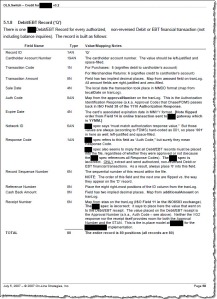Using Internal Documents to Win Business
 When the original edition of “Accidental Genius” hit the market ten years ago, one of the first readers to contact me was Andy Orrock.
When the original edition of “Accidental Genius” hit the market ten years ago, one of the first readers to contact me was Andy Orrock.
Andy told me he would get his best ideas during his daily run. Unfortunately, when he’d return home to write them down he’d be disappointed. “It’s as if a filter got between me and what I wanted to say,” he said. His writing sounded stiff and artificial, and it was hurting his career. The business plans he’d send investors went unread.
Using the “Accidental Genius” freewriting technique, as well as other associated techniques, Andy learned to trust the natural ways his mind used to develop and express thoughts. Slowly, his written ideas started matching the honesty of those in his head.
Andy, however, has pushed the concept of honest expression further than most.
He is now the chief operating officer at a Dallas technology company. There, the salespeople don’t try winning business by sending prospects glossy marketing materials. Everyone knows those are fake. Instead, the salespeople send prospects internal documents — written by Andy — that have been repurposed for public use.
Here’s how it works.
At the start of a client project, Andy writes a detail-rich requirements document that spells out the client’s problem and the steps needed to crack it. The document serves as an internal blueprint around which his firm’s development team can plan their systems and programming work. When the project is finished, the document gets filed.
Now, when a prospect calls and wants to better understand the capabilities of Andy’s firm, Andy digs through the files and finds the requirements document that most resembles the prospect’s situation, crosses out and disguises sensitive information, such as developer and server names, and emails them this “redacted document” as proof that his company knows what it’s doing and has solved this kind of problem before.
Says Andy: “Our documents show prospects 90% of the answer, and demonstrate that we have a mastery of the details. For the first time, prospects feel like they’ve reached a firm that understands what they’re facing.”
The candor of his writing and approach has become a potent sales-conversion tool for his firm.
My question for you, then, is this: What assets do you have that can supplement or replace your marketing materials, so prospects can get an unadorned view of how you think and solve problems?

